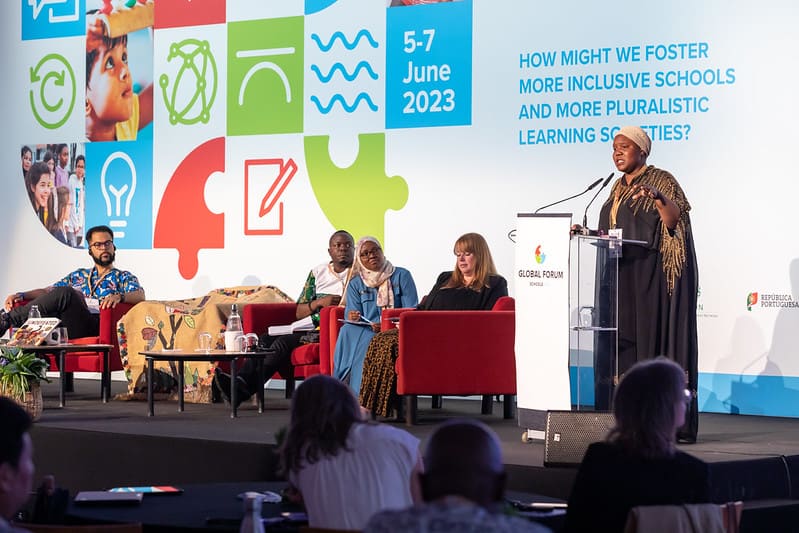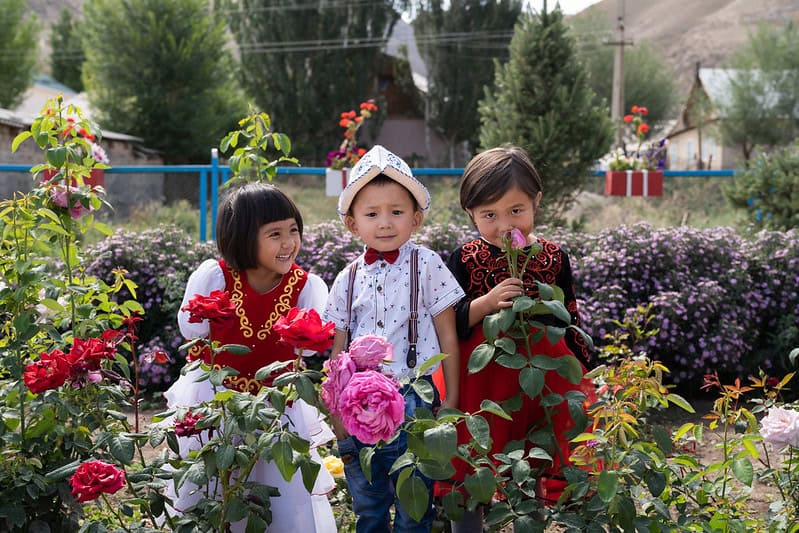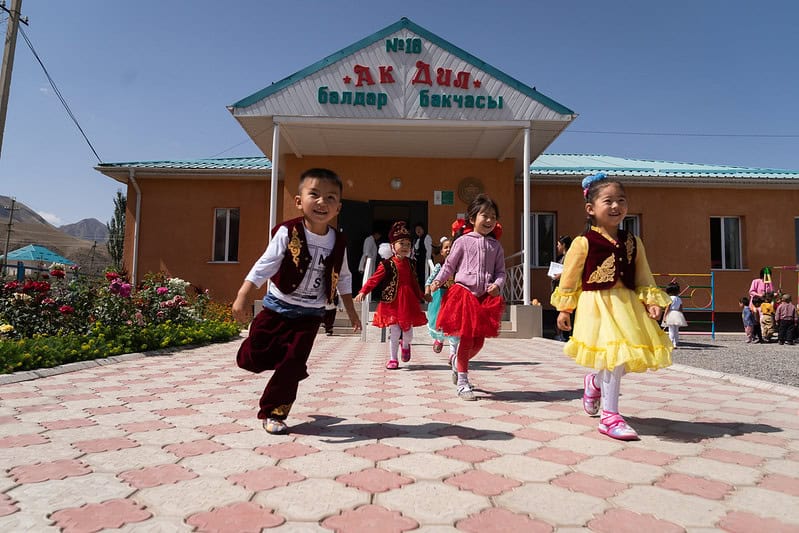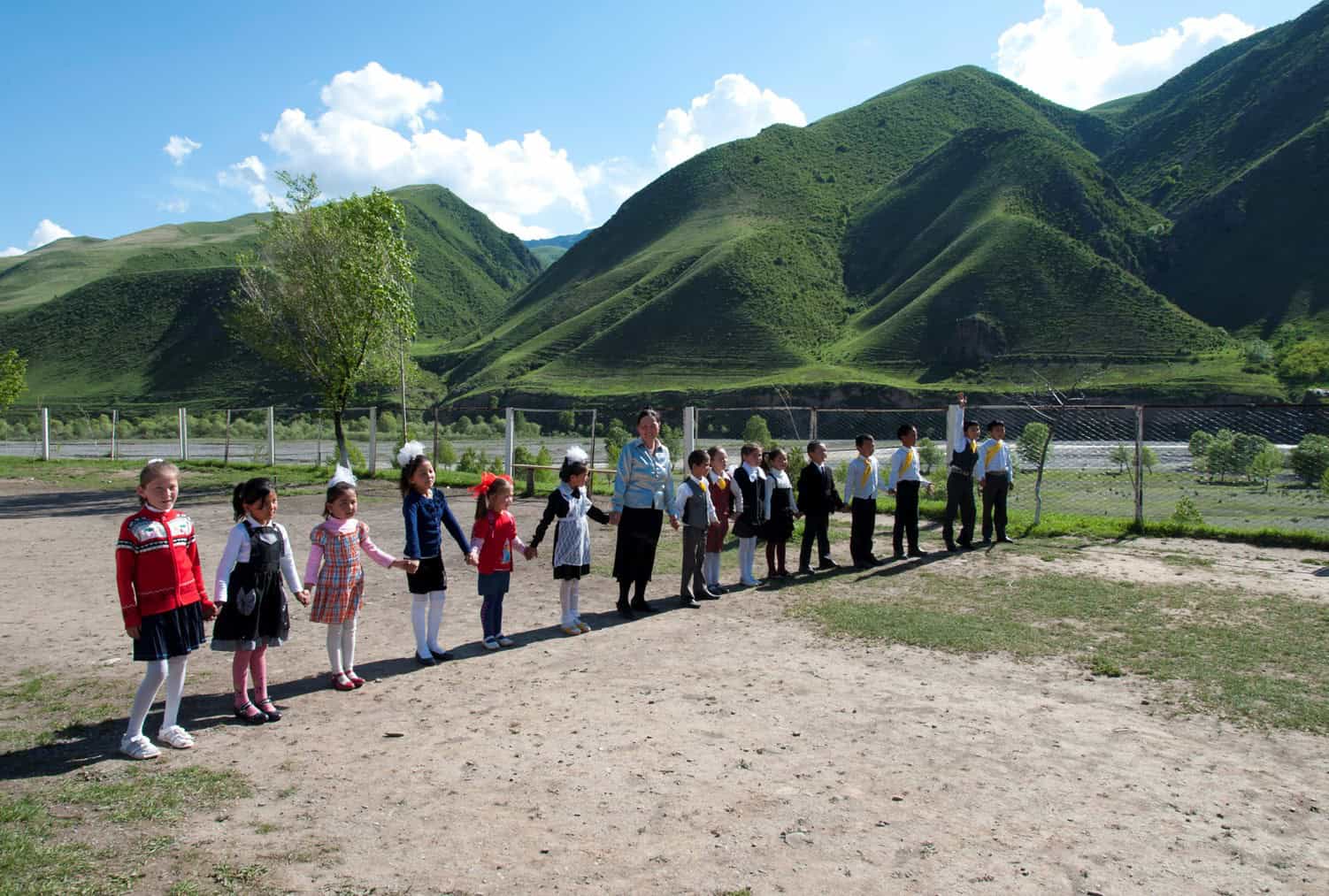The Schools2030 global community, led by the Aga Khan Foundation and in partnership with the Kyrgyz Ministry of Education and Science, are delighted to welcome 250 education system stakeholders to the capital city of Bishkek in the Kyrgyz Republic from 11-13 June.
Under the guiding theme Teacher Leadership for Climate Resilience: How to Transform Learning through School and System pathways for the Future of the Planet, delegates will convene to address the critical topic of climate and education; also exploring how Schools2030’s model for driving impact through school-led innovation can work to strengthen our collective educational response to the climate emergency.

Over a period of three days, the Forum will address three key areas: how to advance holistic learning outcomes, how to improve learning environments, and how we can strengthen learning systems. With delegates including teachers, school leaders, youth, civil society, international organisations, funders and government partners, the Global Forum promises a diverse range of perspectives to unpack these areas and tackle this pressing theme.
Additionally, as we celebrate 100 years of the Kyrgyz Education System, this forum underscores our ongoing dedication to fostering a sustainable future through education and proactive climate action.”
Marlen Alishev, National Coordinator, Schools2030
This year hosted in the Kyrgyz Republic – one of the most vulnerable countries to climate change in Central Asia and Eastern Europe, yet which has contributed just 0.032% to global carbon emissions – the theme of Teacher Leadership for Climate Resilience is particularly significant: in 2024, the Kyrgyz Republic is celebrating 100 years of the Kyrgyz Education System.
“The importance of climate resilience for the Kyrgyz Republic cannot be overstated,” says Marlen Alishev, National Coordinator for the Schools2030 programme.
“Recognising this imperative, The Presidential Decree on Ensuring Environmental Security and Enhancing Climate Resilience in the Kyrgyz Republic was endorsed in 2021. Aligned with this directive, we are proud to host the upcoming forum on Teacher Leadership for Climate Resilience, as part of our commitment towards addressing this pressing issue. Additionally, as we celebrate 100 years of the Kyrgyz Education System, this forum underscores our ongoing dedication to fostering a sustainable future through education and proactive climate action.”


Previous editions of the Forum include Reimagining the Role[s] of Schools, Systems and Societies for the Future of Learning – Schools2030’s inaugural Global Forum hosted in Dar es Salaam, Tanzania in 2022, and which convened a space for the global education community to reimagine the future of learning together – as well as How might we foster more inclusive schools and pluralistic learning societies for all by 2030?, which was hosted in Porto, Portugal in 2023 and which focused on improving inclusivity, equity and pluralism across schools, systems and societies. The annual Schools2030 Global Forums are a key activity outlined in the Schools2030 Theory of Change, since they aim to provide a space for multi-stakeholder dialogue, ensuring – critically – that teachers are brought into conversation with policymakers and other key education sector influencers.
While learning, dialogue and knowledge exchange are key outputs of the Schools2030 Global Forum, the event is also an opportunity to celebrate Kyrgyz culture and what can be achieved when we centre school- and teacher-led equitable and climate-conscious education in our most marginalised schools globally.
The Schools2030 Global Forum will be live-streamed via the Aga Khan Foundation YouTube Channel and Zoom; please visit Schools2030 Global Forum 2024 to see the full agenda and register for the individual live-streamed sessions.
